African princesses
Categories: Africa | Photo project
By Pictolic https://pictolic.com/article/african-princesses.htmlPhotographer Dylan Davis, who lived in South Africa until the age of 24, shot the Nkosozana series, consisting of portraits of African tribal princesses - however, completely fictitious. Davis came up with a story for each heroine, picked up clothes and appropriate attributes with stylists, and instead of models (too thin and tall, in his opinion), he called ordinary girls with a bright personality to shoot. Whether the photographer managed to achieve credibility is up to you to judge.
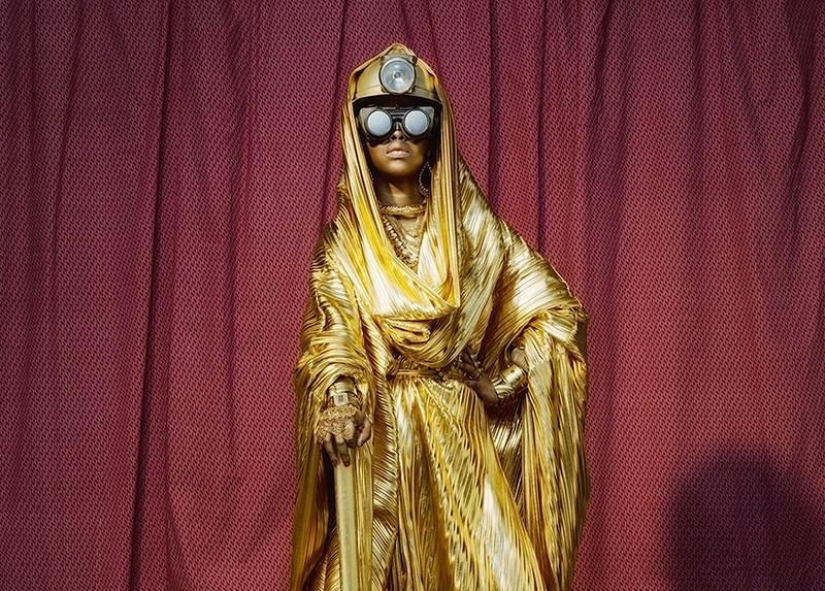
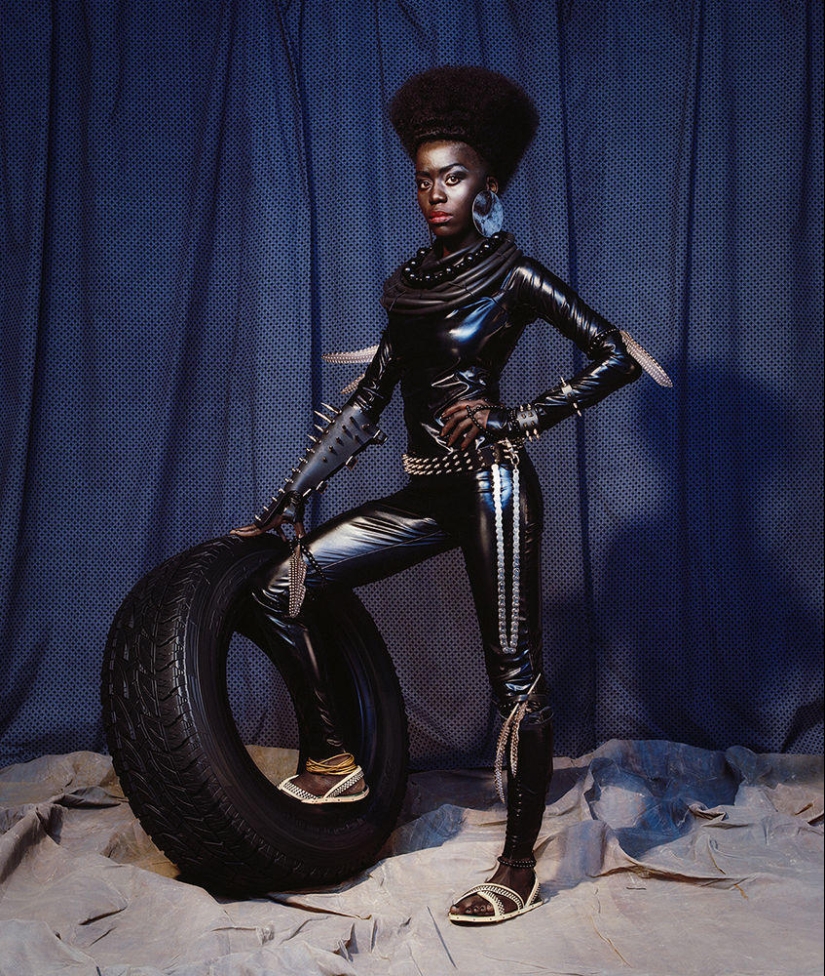
1. Princess Zinhle. Tribe Letsembaba. In the backyard of a carbon black plant is the Letsembaba tribe. After the 2006 earthquake, members of the tribe migrated south in search of coal, where they live to this day. The soot necessary for the production of tires is also used by members of the tribe - men apply it to the face and body during courtship. It is believed that the darker the color of the soot, the more likely a young man is to be chosen as Princess Zinhle and become a future chief of the tribe.
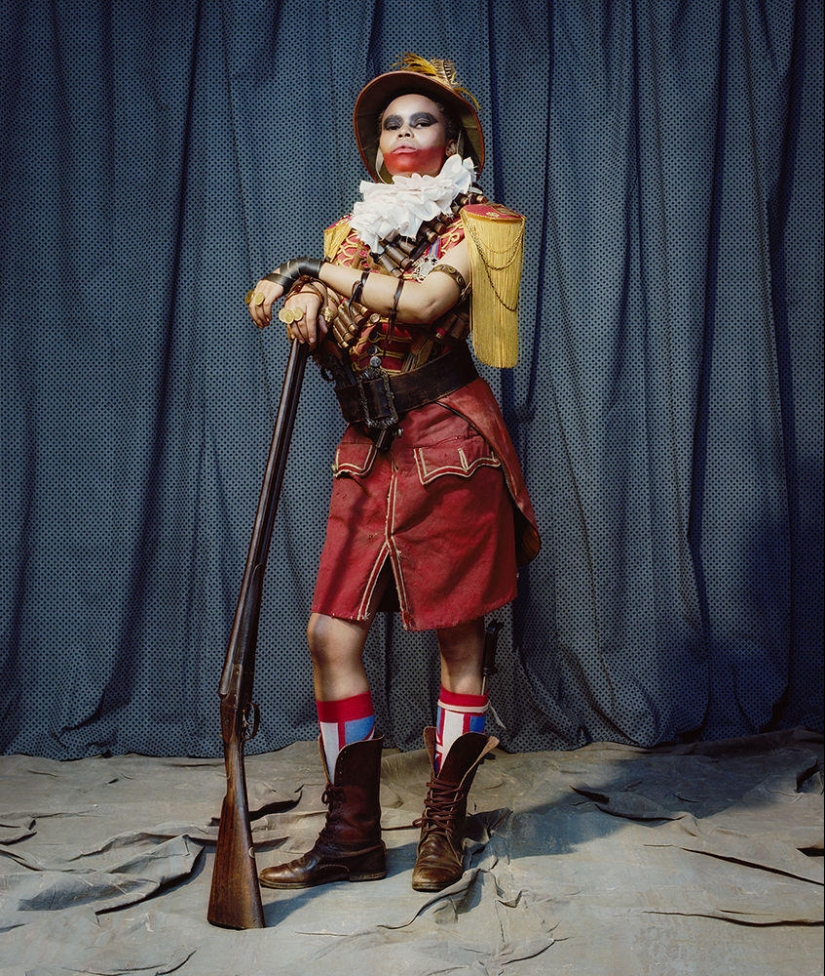
2. Princess Nomuula. Mzumpufufu tribe. Resisting the invaders during the great war of 1902, the superstitious members of the Mzumpufufu tribe dressed the dead in their clothes to demonstrate their strength. According to legend, the reason for the strength and power of the mzumpufufu is that the members of the tribe ate the flesh of the fallen enemy. Princess Nomuula took over the reins of power after the death of her father, His Majesty the Bonbugwe.

3. Princess Sekgolohane. Tribe Pokokakayuris. The terrible Pokokakayuris tribe wandered and expanded for a long time, traveling on horseback, until they settled on the Magaliesberg plateau. Trading in old technology and copper, the tribe members embraced the richness of pop culture fashion, but reinterpreted it in the format of their history, passed down from the older generation and shamans to the youth.
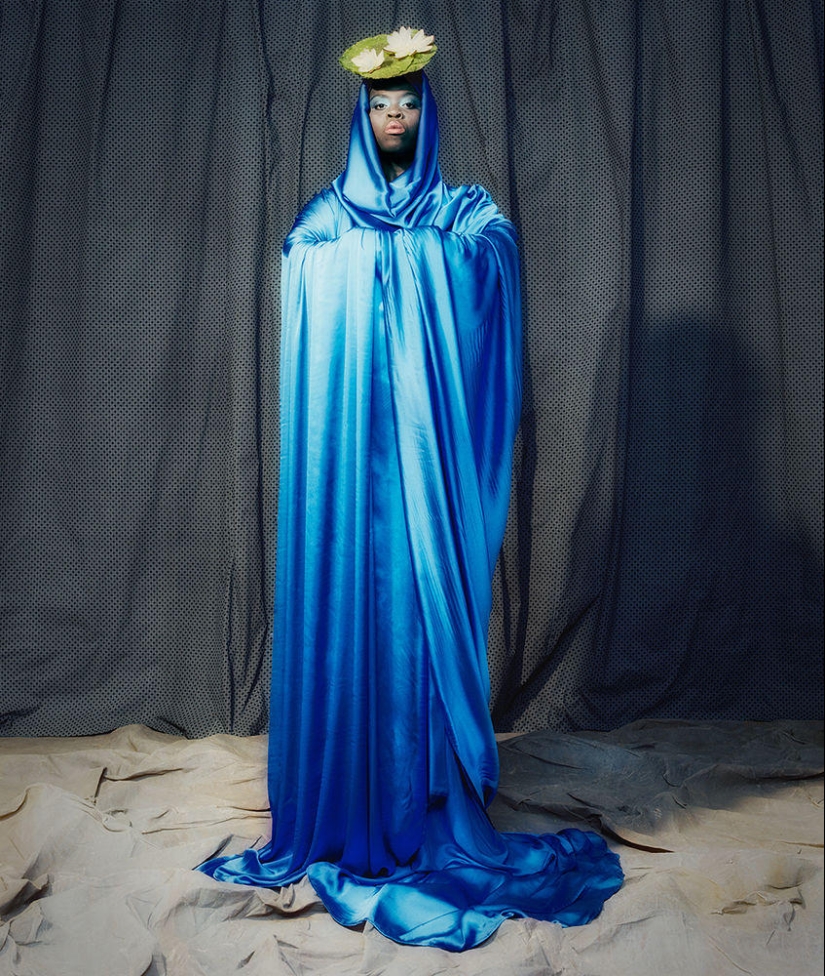
4. Princess Malefou. Dynasty of Kokozidilepha. The true inhabitants of the Limpopo River, members of the Kokozidilepha dynasty, believe that the spirit of the great breadwinner lives in the ebb and flow of the water. According to legend, the life-giving properties of water are the reason for the eternal youth of Princess Malef and her splendor.
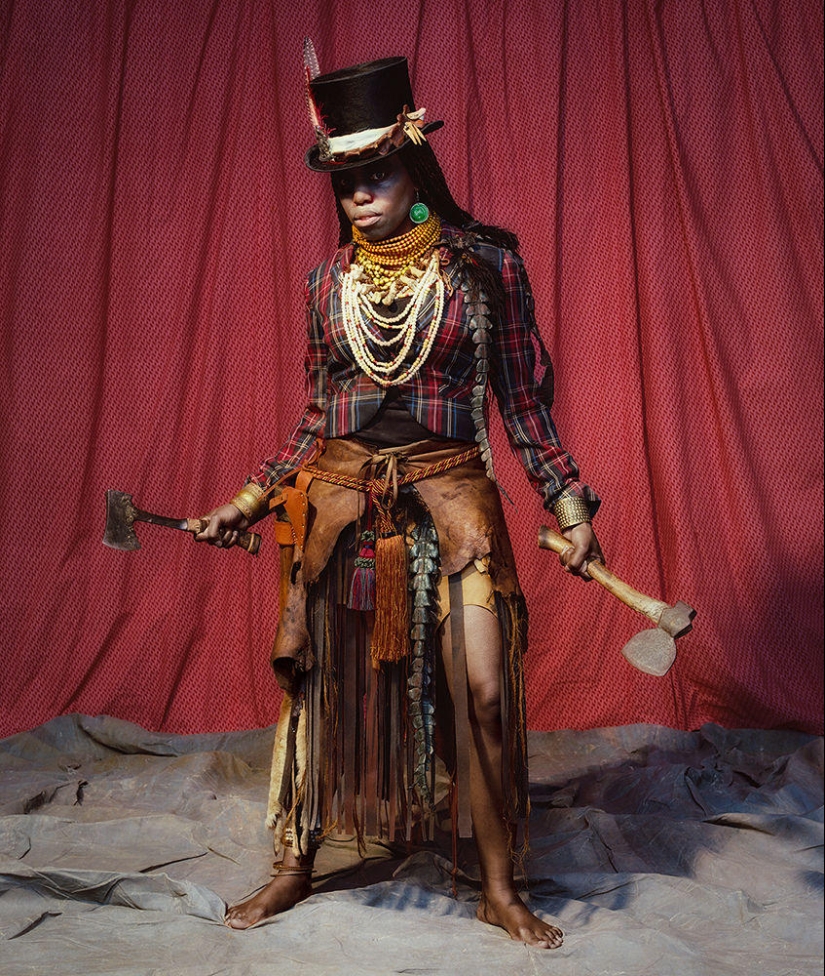
5. Princess Tlholo. Fufusimbele clan. At an altitude of almost 3000 m, in the north of Lebombo is the ancient Afromontane forest, where the Fufusimbele clan lives. Dressed in traditional tartan and local headdress, the clan members see themselves as the spiritual successors of the British Caereni tribe, who existed in the western Scottish Highlands during the Iron Age.
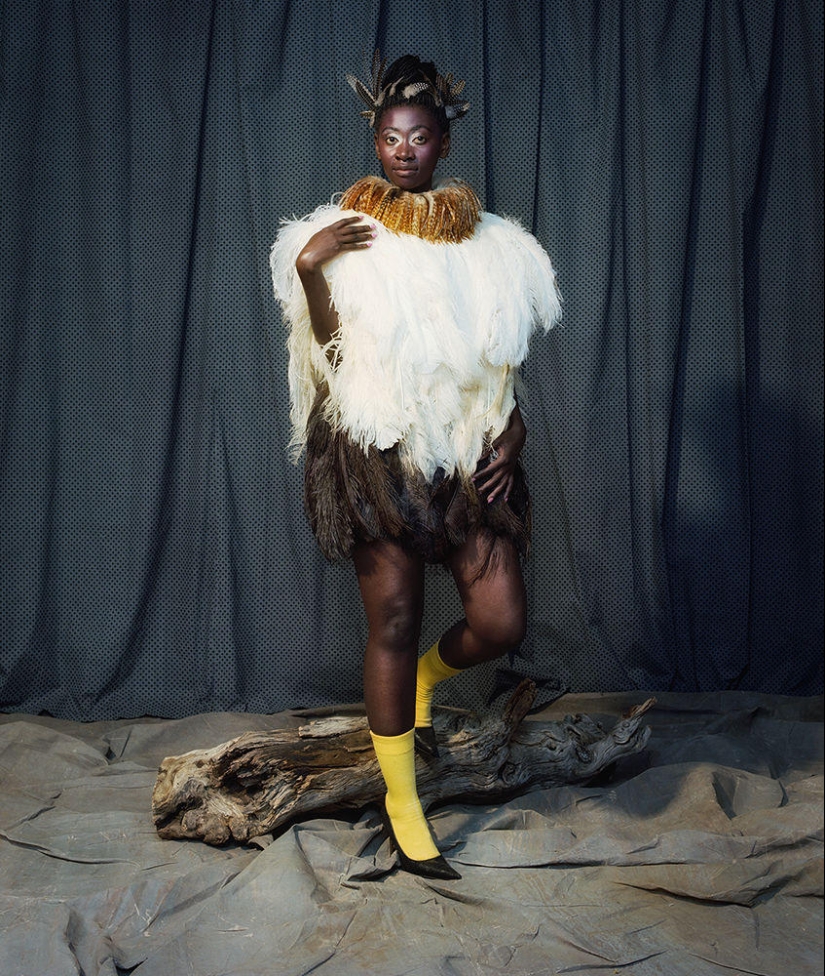
6. Princess Gugu. Mowan tribe. The ancient baobabs in the low veld near Musina are over 5,000 years old. For the last 600 years, they have been home to the Mowana tribe, or, as it is also called by the people, "bird people". Rising 25–30 m above the ground, baobabs are an excellent viewing platform and offer excellent visibility compared to other trees, as well as protect against floods and roaming predators.
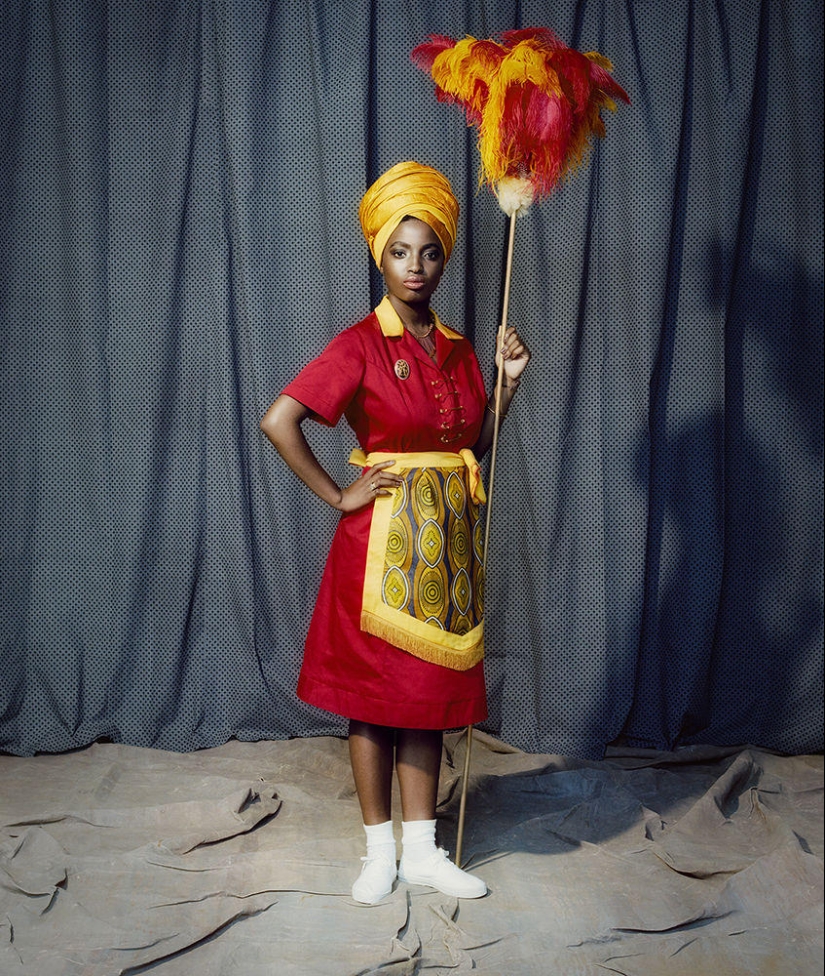
7. Princess Thembisa. Pfongputu dynasty. The sacred talisman of the nomadic prosperous Pfongputu dynasty, the chased redstart, is not easy to see, but it's worth it. This bird is able to imitate and imitate the singing of more than 20 species of other birds in their natural habitat. After tribal conflicts in 1682, settlements were formed near Cape Town, where Princess Thembisa, the goddess of the Pfongputu dynasty, now lives. She tried on the contents of the forefathers' wardrobe, whose contents shed light on the history of the exile of the tribe and its attempts to live in peace and solitude.
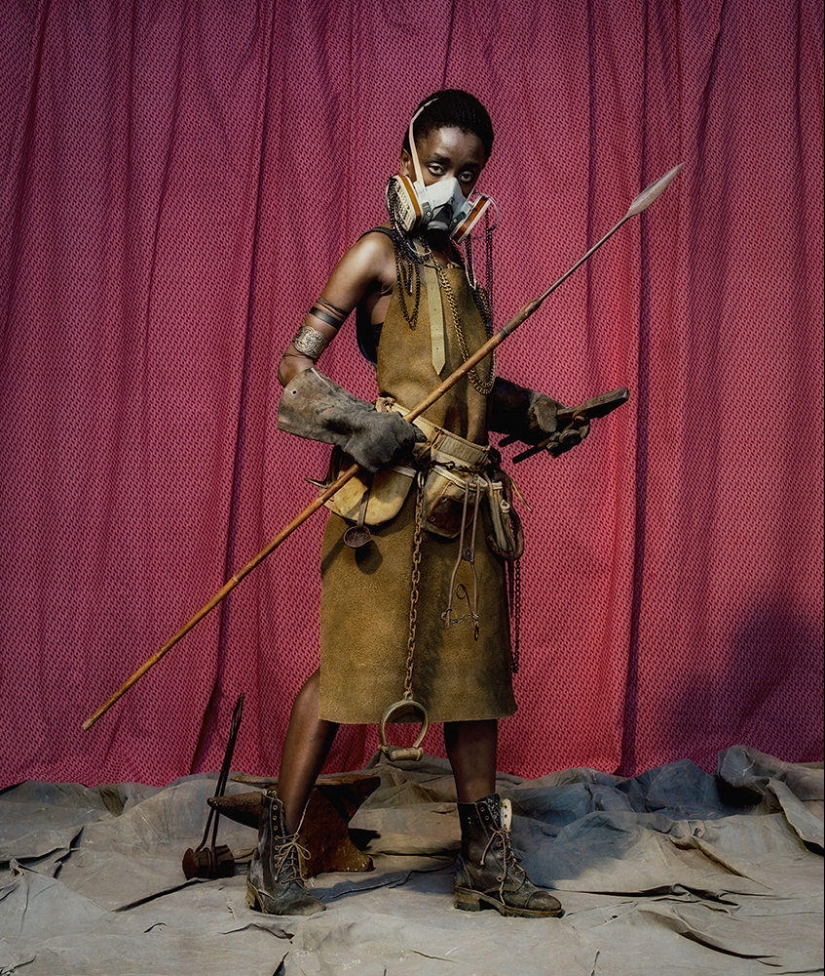
8. Princess Puleng Zimazugu tribe. For the militant Zimazugu tribe, fire is a real symbol of the earth. Using its ferocious warmth, the chimazugu were able to achieve recognition as the best blacksmiths. Their weapons inspire fear in their strength and durability. He is admired and feared at the same time. In the warring region of Gauteng, it is often an attribute of "male conversation."
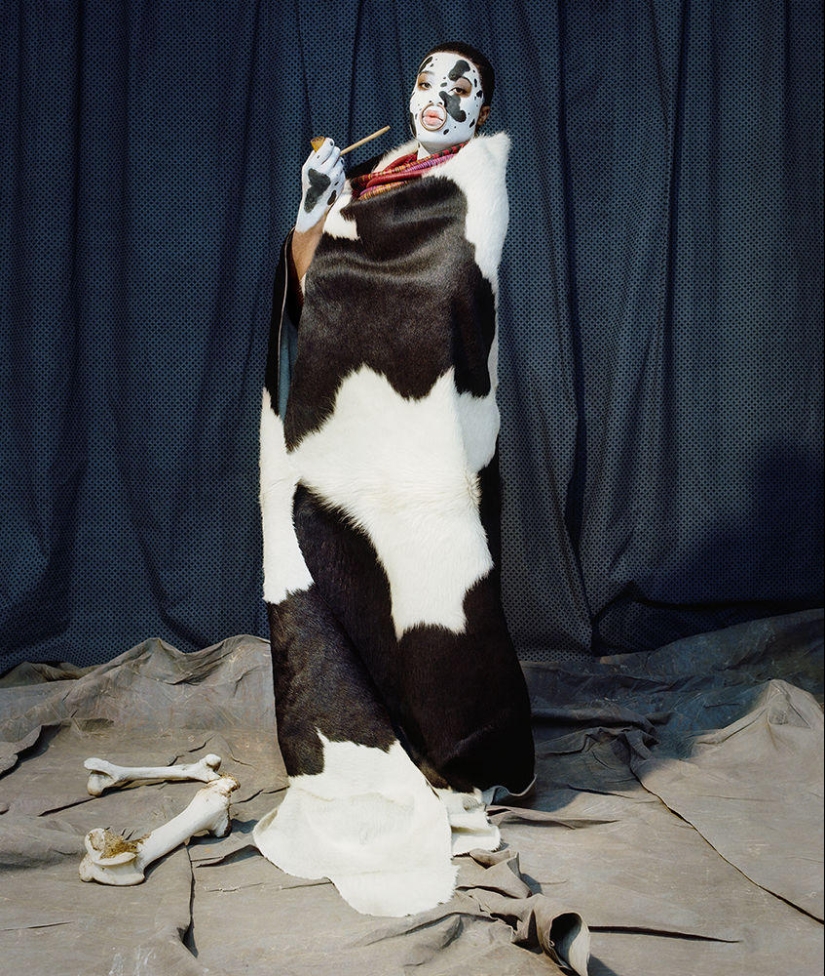
9. Princess Motlalentwa. Zikifeledud tribe. The nomadic people of the Baviansklough savannas revere Princess Motlalentwa as the embodiment of the spirit of the wandering Nguni. As a symbol of great power and prosperity, Nguni's zikifeleduda is valued in tribal culture as a source of wealth and worship, and is also mentioned in legends.
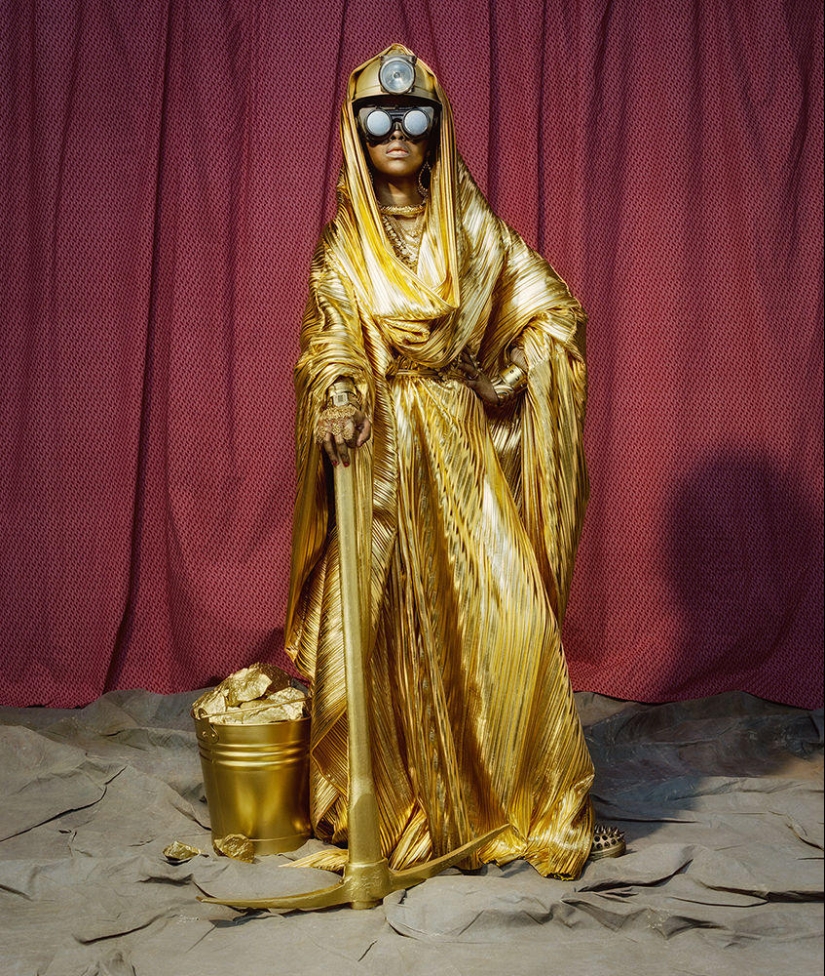
10. Princess Langalibalele Ndogufolpumpu tribe. Dwelling in a land of golden sun and amber, the Ndogufolpumpu, the richest and most secretive of the tribes, lives by mining gold and precious minerals deep underground. Having a developed infrastructure, the Ndogufolpumpu have adapted to the extraction of all of the above in complete darkness, appearing on the surface of the earth only to carry out diplomatic missions and perform a marriage ceremony.
Keywords: Tribe | Portrait | Princess
Post News ArticleRecent articles

At first glance, these colorful works look like ordinary paintings - but upon closer inspection, it turns out that they are made... ...

I want to somehow distract myself from the news about the pandemic and plunge into the beautiful. Here, for example, is a story ...
Related articles

Photographer Naira Oganesyan implemented a photo project in which she showed how beautiful children are with parents of different ...
The famous photographer Sandro Miller has worked with the legendary Hollywood actor John Malkovich many times, but when Miller ...

If you ask each of us how many types of marriage, he knows that the majority will remember the traditional, the civil and maybe ...

Serbian surrealist artist Dragan Ilić creates astonishing and provocative paintings that blend symbolism with eroticism, and ...